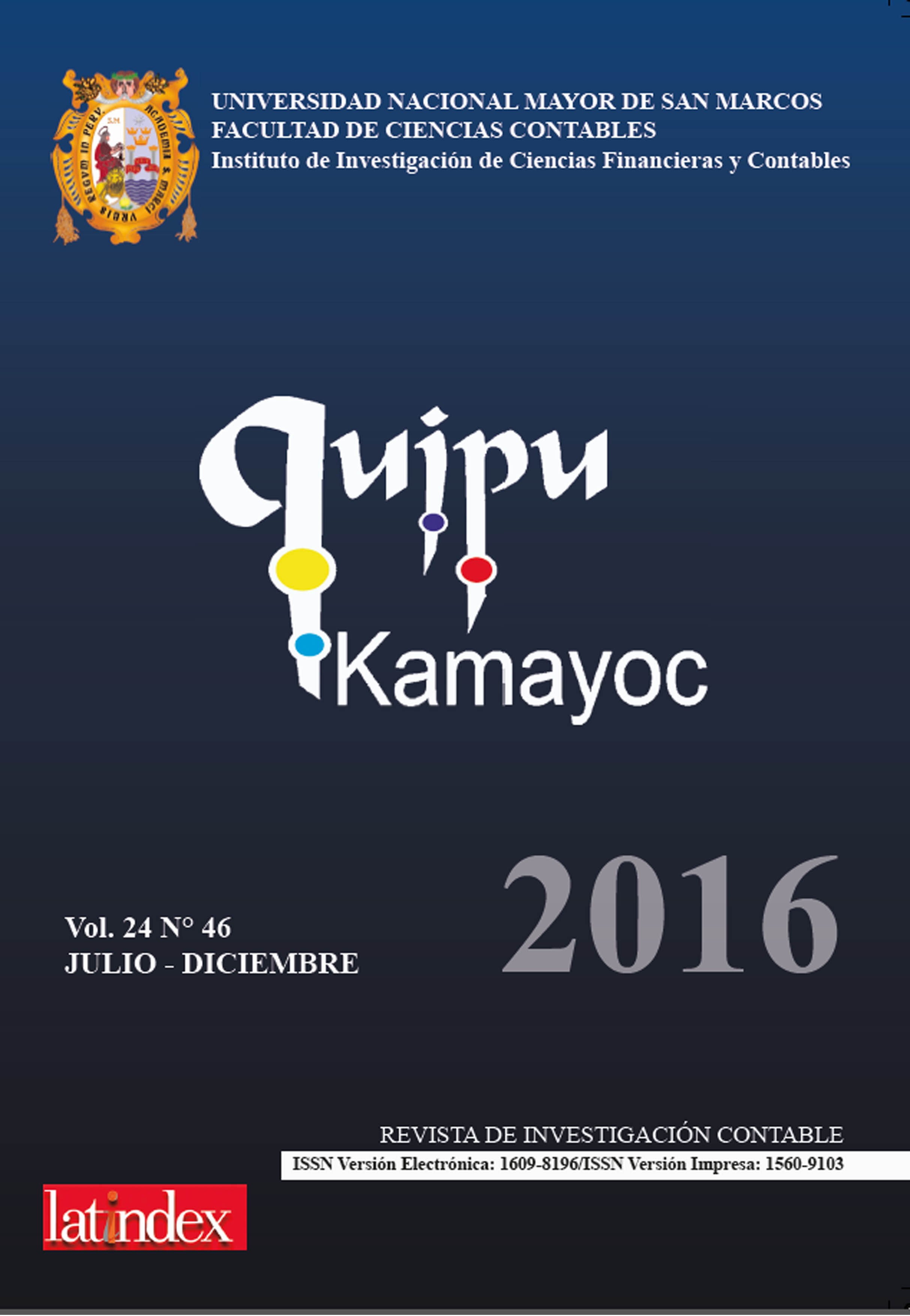STRESSOR FACTORS IN UNDERGRADUATE STUDENTS OF THE ACCOUNTING SCIENCES FACULTY - UNMSM
DOI:
https://doi.org/10.15381/quipu.v24i46.13205Keywords:
Academic stress, Undergraduate Students, Stressor factorsAbstract
This article exposes the problem of academic stress in undergraduate students of the Faculty of Accounting Sciences of the UNMSM. It is based on the first results obtained from the study “Academic stress, determination and solution strategies for the Business Economic Area for the University of San Marcos and the University Center de los Lagos”, developed by the author this year, where the possible academic stressors are addressed. The study sample consisted of 353 students from the first and ninth semester of studies. Through a factorial analysis of components, the objective information on the stress levels present in the studied population was determined. The results show that half of the population surveyed present stress, aggravated in 2.8% of the students. Nine stress factors such as “the inability to participate in decisions about their own academic work”, “a lack of control over their own academic performance” and “ students’ academic overload “, were identified as the most recurrent stressors. Likewise, students in the ninth semester concentrate higher levels of stress, and women, in terms of gender distinction.
Downloads
Downloads
Published
Issue
Section
License
Copyright (c) 2016 Ana María Gutiérrez Hubby, Iris Aguilar Alonso, Elsa Violeta Rafael Díaz

This work is licensed under a Creative Commons Attribution-NonCommercial-ShareAlike 4.0 International License.
AUTHORS RETAIN THEIR RIGHTS:
a. Authors retain their trade mark rights and patent, and also on any process or procedure described in the article.
b. Authors retain their right to share, copy, distribute, perform and publicly communicate their article (eg, to place their article in an institutional repository or publish it in a book), with an acknowledgment of its initial publication in Quipukamayoc .
c. Authors retain theirs right to make a subsequent publication of their work, to use the article or any part thereof (eg a compilation of his papers, lecture notes, thesis, or a book), always indicating the source of publication (the originator of the work, journal, volume, number and date).





























